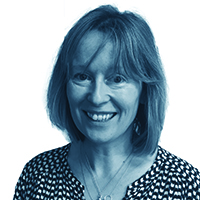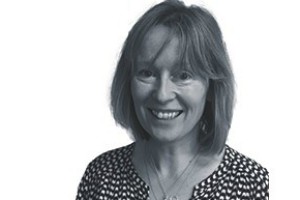
Hospice work is my natural niche within medicine, and I am so grateful to have discovered it some years ago. I continue to work as a GP in A&E, on a once-weekly basis, and I am about to take up a part-time position on the hospital wards, working within the palliative care team there.
This trio of jobs will, I hope, continue to suit me, while earning us enough to live comfortably, minus some of the holidays we used to enjoy, living in a modest semi and driving a Skoda rather than the BMW my husband so loved, but to which I was largely indifferent. (Luckily, as it turns out.)
What I am finding surprising, however, is how grieving affects my doctoring. I had assumed that working with the terminally-ill would magnify my own grief, and be even more emotionally challenging than under ordinary circumstances.
Certainly this has proved to be the case sometimes, but not as often as I had anticipated. Most of our patients are, after all, elderly, and have had time to prepare for their death, albeit sometimes reluctantly, and often incompletely; such is human nature.
The first time, I was eager to avoid the patient by any means possible
I have always been curious about death and about our attitude to it, and this trait has been magnified by my experience of widowhood. I can still take part in the delicate conversations that palliative care so often involves. I think I still have the deftness of touch required – not always, of course, and I wince when I recall the times when I have got it wrong – but often enough to feel that my contribution is mostly positive.
What really quickens my pulse and makes me break into a cold sweat is A&E, and any suggestion that my next patient might be suicidal. That’s the true test of how I am adapting back to work, after my own husband took his life just under nine months ago now.
The first time the triage nurse indicated this as a possibility, I was eager to avoid the patient in question by any means possible. I couldn’t. Or, more accurately, of course I could have, but this would have caused her a prolonged wait, and I felt obliged to at least get the measure of her situation, and provide a ‘first port of call’ listening ear, rather than have her sit miserably for hours in the unappealing reception area.
In fact the consultation – as are so many of those centering around mental health, given the right match between doctor and patient, and a decent chunk of time – proved constructive, rewarding (for me) and helpful (for her). I felt a renewed confidence in my judgment. I listened, I safety-netted, I liaised with her GP, I talked to her mother.
It was only after she had left the room that I allowed myself to appreciate the irony of the situation. I had provided what I hope was compassionate, practical, common-sense help to a patient in the midst of a mental health crisis, as I had so many times before, while having let Richard – husband, father, son, brother, uncle, friend, colleague to so many – slip through my fingers. What else could I do in the midst of a busy clinical session, but take a deep breath and move on to the next patient, leaving any further mental processing until later in the day.
The final area I have found difficult is resuscitation training. Clearly this is essential for every doctor, but given that the last time I practised CPR was in real life (or, more accurately, death) on my own husband, the prospect of repeating the process on an inert doll was not one I could easily stomach. I managed to get through the afternoon, however, and the trainer was sensitive to my situation and did not insist that I participate in the CPR practical itself. Another challenging moment resulted from attending an update on depression and anxiety – I had to leave that particular talk halfway through – and I decided against the workshop on ‘new directions in funeral care’ held at our hospice recently.
All in all, however, work is helpful, giving my life structure, purpose, a hefty dose of meaning – and paying the bills. Yes, there are tearful moments. There are times of anxiety, and even dread. But the good outweighs the bad. The positive interactions are more frequent than the negative. I am still a doctor, despite everything.
Dr Kate Harding is a locum GP and hospice doctor

















